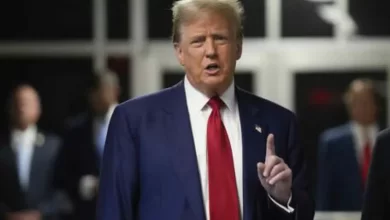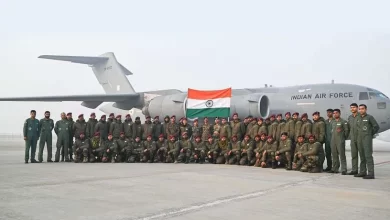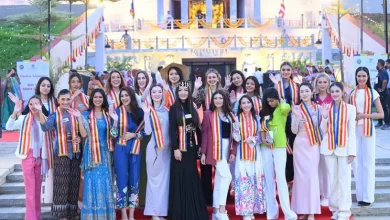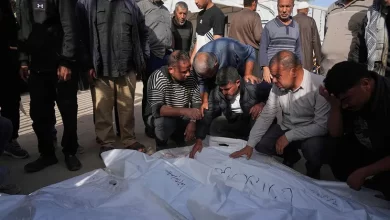India at high risk of mass killings, warns US ambassador for religious freedom
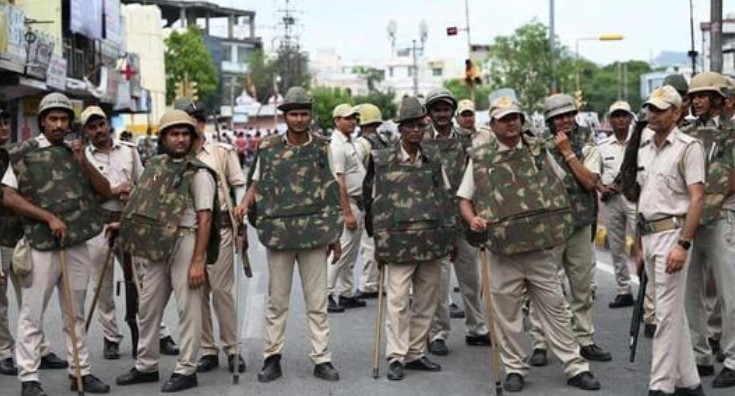
The US ambassador at large for international religious freedom Rashad Hussain on Thursday warned that an early warning project ranked the risk of mass killings in India as the second highest in the world. He also listed out a set of “ingredients” threatening the rights of religious minorities in India, and said that the US is speaking directly to India about its concerns.
Speaking at a panel on religious freedom in India, the US official said the Early Warning Project at the Holocaust Museum designated India as number two among countries at risk of mass killings.He referred to the Citizenship (Amendment) Act and cited “open calls for genocide”.
“We have had attacks on churches, demolitions of homes; we have had the ban on hijab; we have got rhetoric that is openly being used that is dehumanising towards people so much to the extent that one minister referred to Muslims as termites,” he said.
Hussain said that for any society to live up to its potential, the rights of all people had to be secured, referring to Muslims, Christians, Sikhs, Dalits and tribals. “The world’s largest democracy is a country where, just like with our country, we push, we want to make sure that we live up to our values so that we can reach our potential. That can only happen if we have the full participation, equal participation of all people.”
Hussain – whose office prepared a recent report on religious freedom released by Secretary of State Antony Blinken, where the latter flagged concerns about “increasing attacks on people and places of worship in India” — referred to his Indian roots and defended America’s right to speak up about religious freedom elsewhere.
India had rejected the state department’s report on religious freedom, at the time, calling comments by officials “ill-informed”.
It was unfortunate that “vote bank politics” was being “practiced in international relations”, India had said, urging the US to not base assessments on “motivated inputs and biased views”.
India said that, as a “naturally pluralistic society”, it valued religious freedom and human rights.
“In our discussions with the US, we have regularly highlighted issues of concern there, including racially and ethnically motivated attacks, hate crimes and gun violence,” it said.
Hussain on Thursday said it was important to take note of the challenges and work together to address them, adding that the US was directly raising these in conversations with India.
“It is important that we work together, fight for the rights of all people. If there is anyone who is attacked – there was an attack yesterday, it was despicable — we have to condemn that too,” he said, apparently referring to the Udaipur killing, where two Muslim men executed a Hindu tailor over his support for former BJP worker Nupur Sharma, openly brandished weapons, and then threatened Prime Minister Narendra Modi.
Hassan also addressed a question that he said he had been asked many times: what gave him or the US the right to assess the state of religious freedom elsewhere in the world?
“First of all, we are a country founded on religious freedom. Many of our founders were fleeing religious persecution. Our first amendment protects the freedom of religion.”
He added that the US was also unique in being a country of immigrants.
“We are country compromised of people from every corner of the world. They demand from their elected officials and government that we not only stand for those values in the US but we stand up for those values all over the world…We are a country made up of representatives of the rest of the world.”
Hussain also referred to his personal roots, and said that, in many ways, India is his country too.
“My father came from India to the US in 1969. This country gave him everything but he loves India and follows what happens everyday. My parents and we have conversation about that, as do so many of you who reach out to us and are looking at what’s going on in India and love the country and want to see it live up to its values.”
While the state department official is seen as a key figure pushing the Biden administration to focus on issues of minority rights in India, he is one voice among a set of many voices in the Joe Biden administration. Other constituencies, including the National Security Council, Pentagon, Central Intelligence Agency, and Secretary Blinken’s office and the South and Central Asia Bureau in the state department, are understood to have far more influence in shaping India policy.

